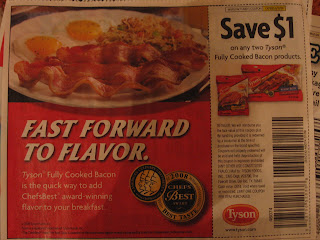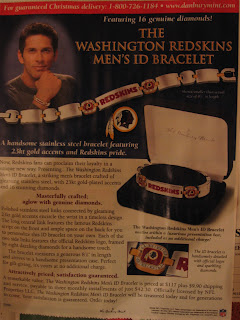So I haven't written a nonwork-related word since that last post, which makes this an especially appropriate post.
Now that
National Novel Writing Month is over, I've found that it indeed works, as I haven't touched my "novel" despite the best of intentions. Part of the problem is that I'm not entirely comfortable with what I'm writing about. But I'm not going to write about my internal struggle because I don't want anyone to know what I'm writing about. That's how uncomfortable it is.
Instead, I will wax a little bit about the ethics of fiction writing, which actually played itself out in another way for me last month. A few weeks ago I went to see
two fantastic authors speak at a Pen/Faulkner event at the Folger Shakespeare Library. I put all that in there so you know exactly what kind of book-gobbling yuppie I am.
It was excellent. I now understand why Wes stays up late playing guitar after coming home from a concert.
But anyway,
Russell Banks read a short story he'd written,
Cow-Cow, based on something that happened to a friend. The story was about a couple who shoot their runaway cow in a cemetary, which serves as an allegory for the end of their marriage. (Does that sentence make sense? I really wanted to use "allegory" but couldn't make it fit.) Anyway, he said that was a true story, but that his friend was annoyed that he'd changed it; she and her husband are in fact stil very happily married.
That led to a discussion about where ideas for fiction come from. As
Richard Russo said, you can't jump from thin air into thin air. An idea has to come from somewhere. One of the authors said that "fiction is in the details," that writers take their experiences or the experiences of their friends (or someone else's book/movie/idea) and fill in the details, and that's what makes it their own and a work of fiction. And that made me feel a little better about what I was writing.
I had also recently visited
my favorite place, and found
James Frey's new novel,
Bright Shiny Morning on the new books shelf. Oh, I thought, I should read this, but first I should read that other book and see what all the fuss was about.
Frey's other book, as you probably know, was
A Million Little Pieces, which incurred the wrath of Oprah herself when The Smoking Gun revealed that the so-called memoir was pretty much
completely made up.
Now, I was well aware of the controversy, but I was somewhat sympathetic to Frey. Memoirs are usually fictionalized to some extent. Names are changed, no one remembers exact conversations and details. That's ok and understood in the world. Of course, they're supposed to be mostly true.
But since I'd never read Frey's book, I didn't follow the brouhaha too closely. So, some 3 years after the story broke, I was happily reading and enjoying
A Million Little Pieces, and though I knew some of it was made up--enough to make Oprah angry--I was still subconsciously reading it like it was a memoir. I thought it was mostly true, but I kept wondering what wasn't.
After talking to someone who told me she'd read the book before the controversy, I finally went and looked up what all the fuss was about. The TSG article is, in a word, devastating.
Go read it. I'll wait.
Turns out, as I'm sure everyone but me already knew, James Frey is a big priviledged phony. If you don't have time to read the article, that picture of him at the top of it pretty much sums it up.
I was at my parents' house for Thanksgiving, and I'd only brought one book (something I usually never do), so I continued to read the book after reading the article. And I couldn't do it. I was disgusted. I now understand why he felt the need to claim it was a memoir; otherwise it's a portrait of a meathead, a completely unrealistic protagonist with no redeeming qualities and a pretentious writing style that's supposed to mimic the cluttered mind of an addict. But when you know you aren't reading the mind of an addict, you're reading what a rich white kid who liked to drink a lot in college thinks a hardened addict might sound like, something he's imagined to further himself and his bad-boy image, well, it's just gross.
What's so remarkable is how strong my reaction was. I always, with the exception of
Hannibal, finish books. Even when I don't really like them, I still muddle through and look for redeeming qualities and learning points. But I couldn't take one more sentence of Frey's arrogance. And reading the book, it was quite clear that, as TSG noted, the book never ever would have (and didn't) sell as a piece of fiction. It was a terrible cliche. (And it made me feel bad about what I was writing. Not because I'm lying about myself, but because my story is exploitative in a certain sense.)
Which is interesting to me, too. I guess the difference between Banks' fictionalization of real events and Frey's is that Banks is a superb writer. He got published without the back story, because his books are really good. I also don't really know anything about Banks other than he seems like a nice dude, but that's probably because no one has ever needed to drag his lying name through the mud, a la Frey.
And if anyone has read this far, I hope some of that was interesting to you, too. I didn't realize this would be so long, and I usually do edit my ramblings, but I was trying to work this out in my head.
So thanks for indulging me. I know this has almost zero relevance to the rest of the world, but if you have any thoughts on any of it, I'd like to hear them.



 M&Ms premiums are crazy delicious. Think M&Ms can't get any more delicious. So did I. But think again, my friend. Think again.
M&Ms premiums are crazy delicious. Think M&Ms can't get any more delicious. So did I. But think again, my friend. Think again.



